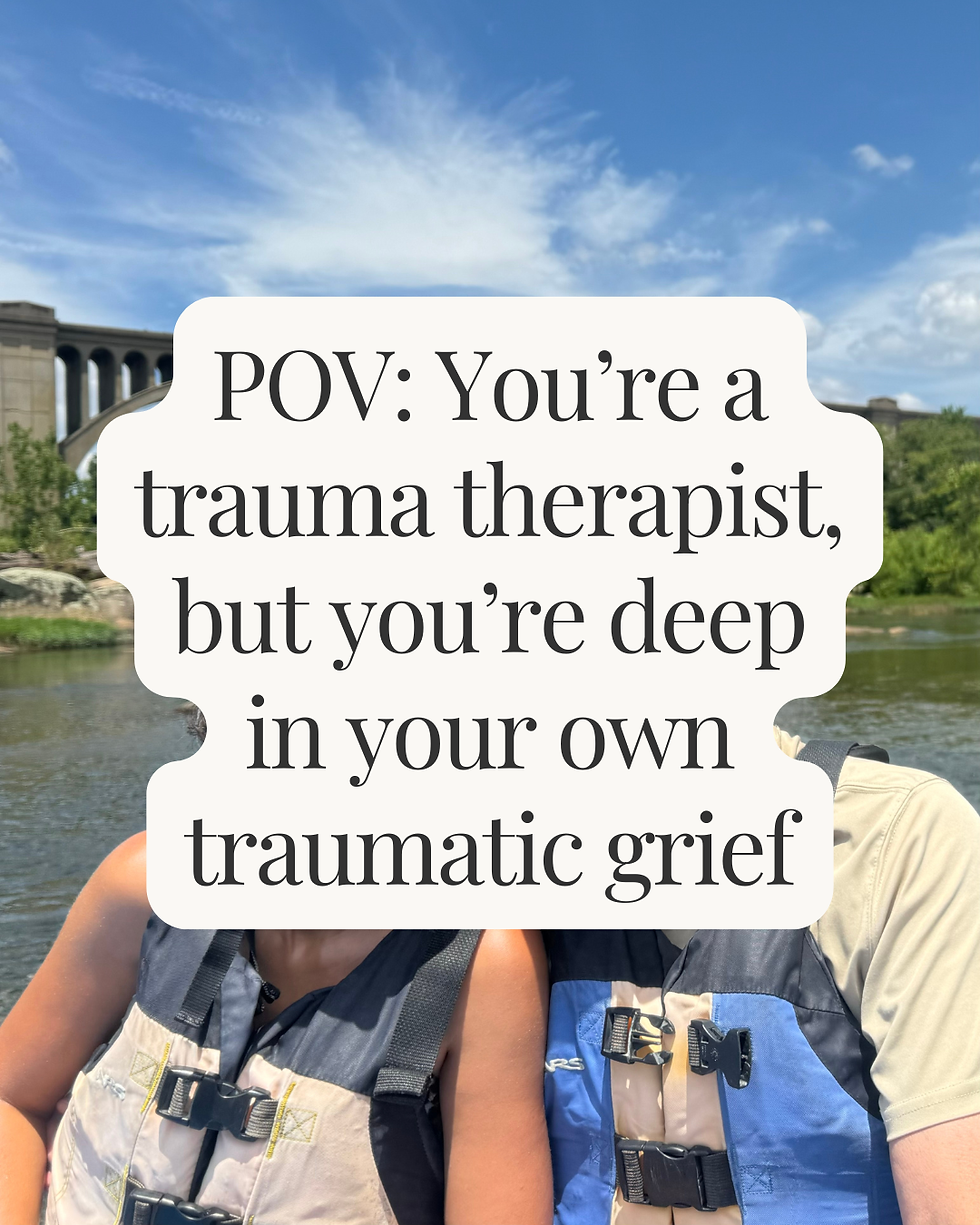Whose to Blame for a Toxic Workplace?
- Adrienne Loker

- Apr 25, 2025
- 3 min read
Updated: May 21, 2025
By Adrienne Loker, LCSW, EMDR, SE Therapist
I feel compelled to write about the employee’s role in contributing to an anti-toxic workplace culture, following a series of posts I’ve seen placing the full burden onto leadership.
I have eaten a lot of humble pie since becoming a group practice owner for trauma therapy. Motivated by experiences with both healthy and unhealthy supervisors, I was eager to create a refuge for therapists wanting to work within community spaces.
I was quickly disillusioned by some experiences that highlighted my naivety in my managerial role. For starters, I was living in this paradigm that a toxic work culture was the sole result of the attitude and behavior of the leadership team. This led me to believe that if I paid enough, provided as many benefits as I could (to the detriment of my own earnings), and was as understanding as I could possibly be toward the emotional needs of my employees, that we would be completely void of toxicity.
While I’ve employed multiple people who have appreciated me showing up in this way, I’ve also had the experience that no matter what I provided, it was never enough. At times where I pointed out this observation, it became clear that I wasn’t the only one living in the paradigm of employers having the sole burden of healthy workplace culture.
While it’s unequivocally true that leaders set the stage for workplace culture (and possess the responsibility to prune workplace toxins), assuming that they achieve this in a vacuum is quite flawed. The opposite of “toxic” is “safe,” and safety is a communal endeavor that requires consistent action.

So how do we go from “toxic” to “safe”?
1) Expectations: Unrealistic expectations is a catalyst for resentment. We often talk about the employer who expects too much work while paying too little (which is absolutely a problem), but there also exist employees who expect to receive too much while giving too little. This experience has taught me the importance of vetting for values aligned clinicians in the application process, and being clear during negotiations about what I can offer and what they’re willing to accept.
While things change and contracts can be renegotiated, it is quite the red flag for this to happen again and again in a short period of time.
2) Assumptions: Leaders are often put under the microscope for assuming that their employees are inherently lazy and need to be micromanaged (again, this is a problem, but it’s not a universal problem). What we don’t often talk about are the employees who assume that all employers are naturally greedy and do very little work while making this massive profit margin. I usually find this is the case if I ever need to defend our overhead expenses. The reality is, in the field of therapy, group practice owners are not getting compensated for their time marketing, strategizing, and other CEO level tasks. At least for me, I still rely on what I bring in seeing clients to cover my own paycheck.
I had someone ask me, “So then why even own a group practice?” To me, that question illustrates a divergence in values. I truly value working in community and how that opens the doors for our team members to diversify their services - something that is incredibly difficult to do in a solo practice.
While these assumptions can be true for some employers and employees, they’re not universal truths. I’ve found that sharing openly what motivates us helps us to see who our team members really are in the group setting and how we can best work together.
3. Trauma Re-enactments: I believe we all come into the field of trauma therapy looking for our own trauma recovery answers. If we haven’t found them, they will be unconsciously projected onto the rest of the team. Feedback can feel like an attack and a boundary can feel like abandonment. Introspection, accountability, and empathy are necessary to evaluate our workplace relationships so that we can determine if we’re reacting to something from our past, or something from our present.
Establishing a safe work environment is a both/and endeavor. Not one party can hold all the blame - that binary way of thinking is in itself toxic.
Adrienne Loker, LCSW is an EMDRIA Certified Therapist, EMDR Consultant in Training, and Somatic Experiencing Therapist. She owns and operates a trauma-sensitive therapy practice, Seeking Depth to Recovery, that specializes in the treatment of complex and non-verbal trauma, using experiential modalities in an intensive format. In as little as one 90-minute intensive therapy session, participants report marked insight into their anxiety, panic, depression, and trauma compared to their previous experience with traditional talk therapy.
#TraumaTherapy #TreatmentforTrauma #ComplexTrauma #CPTSD #EMDR #IFS #CPTSD #ComplexPTSD #SomaticHealing #SomaticTherapy #SomaticInquiry
.png)



Comments